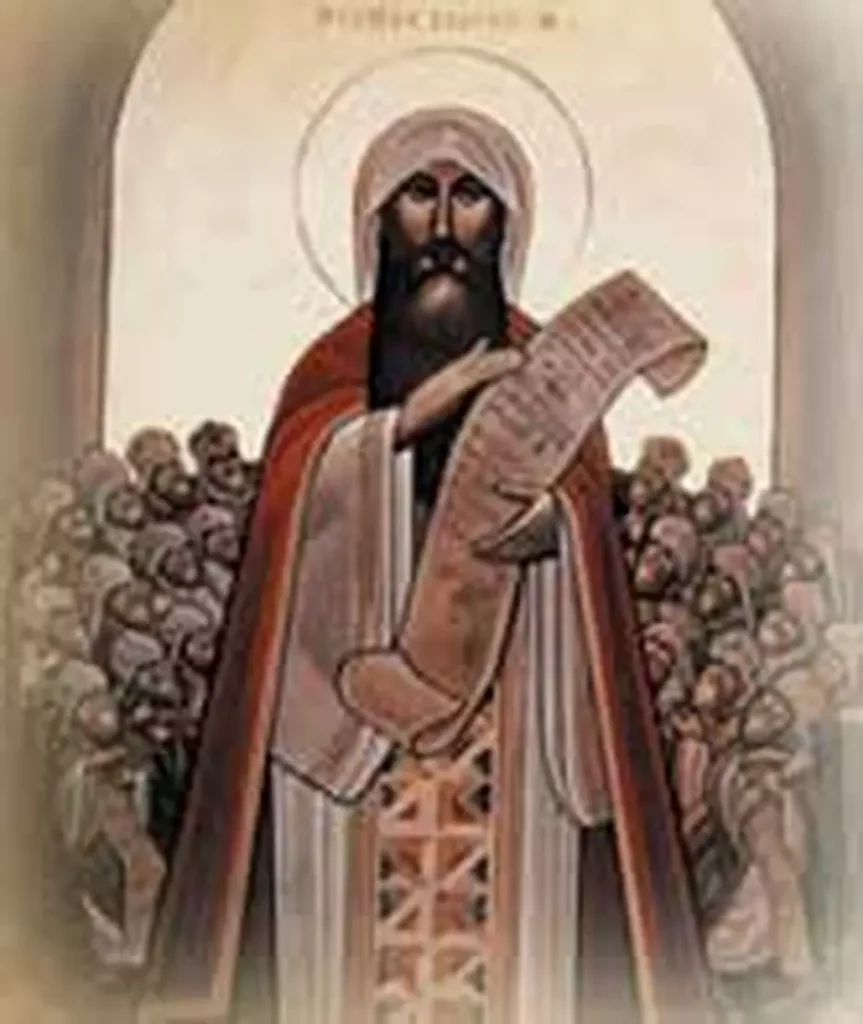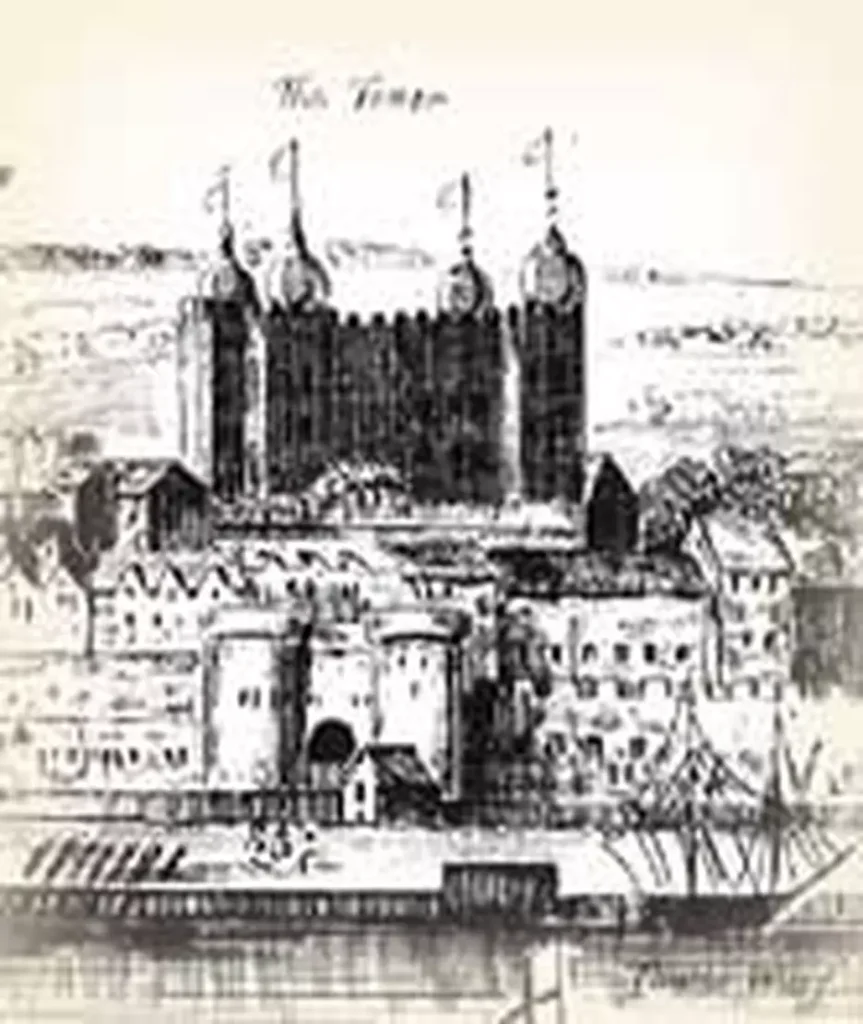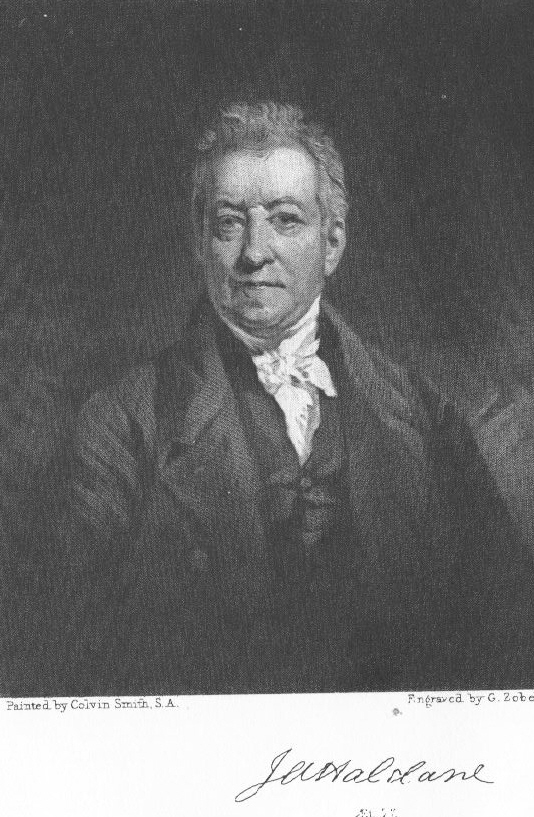
356
The historic Christian faith was forged in turbulent times and under perilous conditions. The creeds and doctrines that shaped our Christian identity emerged from intense theological battles.
There were times of physical violence in the process of defining the central teachings of the faith. For example, the question of exactly who Jesus was. Here is part of the story of the incredible conflict over that issue. Imagine this, if you can:
The Date: February 8, 356.
The Place: The church of Alexandria, Egypt
The Event: Armed troops barged in at the middle of a worship service to capture a single unarmed man — the pastor, Athanasius.

Athanasius was one of the most honored names in all Christian history, but at this particular moment, he was on the outs with Emperor Constantius. This emperor, son of Constantine the Great, favored the Arian doctrine — a teaching that Jesus was not fully God but a created being. In the Council of Nicea that earlier rejected this view, Athanasius had been the clearest speaker for the Orthodox position. The Arians longed to “get him” for the part he played in their defeat.
It seemed that their moment of triumph had finally come. Twice before, enemies had maneuvered him into exile, but this time they expected he’d be captured or killed. By rights they should have had him, too, because his sense of honor would not let him save his skin by fleeing. His monks pleaded with him to run when the troops first surrounded the church, but Athanasius would not budge. Even after the soldiers burst into the building, the bishop stayed glued to his seat. He would wait until he saw his people safely out, he said.
What saved his life was his body’s weakness. Unused to the sight of blood, he fainted in horror. The monks hustled their unconscious hero out of the building in the confusion. For the third time since he became bishop, Athanasius headed into exile. It would not be his last. Indeed, these were the days when being a theologian could be a hazardous calling.
Most men would lose heart after one exile or two, especially when those exiles dragged on for as much as seven years. Athanasius endured five exiles under four emperors. Through it all, he persistently argued that Christ is fully divine. On that he would stake his life.
Once he even confronted Constantine in Constantinople, refusing to step aside so the emperor’s horse could pass. He defended himself on the spot and might have won the day, too, if his enemies had not accused him of using his influence to hold up grain shipments from Alexandria. Although Athanasius stoutly denied the charge, the angry emperor exiled him to Gaul (France). Accused by his enemies of murdering an opponent (even going so far as to pass around a hand that they claimed was from the corpse), he located the “dead” man and produced him at his trial. The charges were dropped. Still, his enemies did not give up. The stakes were high: influence on the emperor’s mind and, through him, on the empire. The intrigue at court was fierce.
As political power swayed back and forth, Athanasius was either condemned or exonerated. He either trudged into exile or returned triumphantly to take up his duties as bishop, welcomed by the citizens of Alexandria.
Athanasius survived repeated attacks because of the loyalty of his people and the Egyptian monks. Despite imperial threat and manhunt, the monks hid their beloved bishop for six years during his third exile. As for the people, the honor in which they held him was demonstrated after his first two-year exile. Delegates from Alexandria met him upon his return a hundred miles out of town–a three day walk– as if he were a conquering hero. What a sight it was as they greeted him by flaring torchlight in the purple night!
The Arian heresy won its share of victories. The Goths became Arian, for example, and spread their doctrine across Europe by conquest. But by 525, even the Goths had converted to orthodox views. Athanasius, long dead, had prevailed in the cause for which he risked his life. Most Christians from then on confessed that Jesus was “very God of very God.”
Outfoxing the Foxes and other Fascinating Facts
Babyface. Athanasius had a baby face. To become bishop, he had to be at least thirty. So young did he look, that there was argument at his consecration whether he was really old enough to serve as bishop or not!
Reluctant Bishop. Athanasius was so reluctant to become bishop that he sent another man named Athanasius to answer the call of Alexander, his dying bishop. “You think to escape, but it cannot be,” said Alexander.
Rome supports Athanasius. Julius I was bishop of Rome in Athanasius’ day and gave this North African bishop refuge during his second exile.
Cruel George. George, the Arian bishop sent to replace Athanasius during his third exile, was a brutal pork contractor, who tortured people, trying to force them to accept a new creed. Alexandria rioted against him. Few mourned when George was assassinated.
Outfoxing the Foxes. On his fourth exile, Athanasius, now in his sixties, fled up the Nile, hotly pursued by his enemies. They hailed a boat coming down river and inquired if Athanasius were far ahead. “You’re close now,” came the shouted reply. “Hurry. You may catch them!” The pursuers strained at their oars while–you’ve guessed it–Athanasius and his crew merrily sped downstream!
Mobbed for “Magic.” When Athanasius produced the missing man at his trial–the one he was supposed to have had killed, both hands intact–his enemies said it was done by magic and whipped up such a mob that Athanasius barely escaped with his life.
Arius, whom Athanasius deposed, did maintain that Jesus was “divine” but not fully God. Rather, he was a created being. Athanasius insisted that Jesus was fully God. Is all this idle theological speculation? Not according to Athanasius. At stake was nothing less than this: God so loved the world that for our salvation He did not send one of His creatures to do the dirty work but came Himself.
A Great and Diverse Legacy
Despite repeated exiles, he had a huge impact on his age–an impact felt to this day.
Books. By the time he was twenty-three, Athanasius had written two books, one of them a theological masterpiece on the incarnation of Christ. The power of Jesus to turn men away from evil led him to exclaim, “What hath Christianity wrought!” His books are read to this day, and many of his arguments still hold up.
Council of Nicea. Nicea was the first of the great church councils. Athanasius went as an assistant to his bishop, Alexander, and helped win the day for the orthodox. He replied to the Arians and drafted the council’s creed.
Bible. Writing his Easter letter to his people in 367, Athanasius set forth the authoritative list of Christian writings that would be finally approved at the Council of Carthage in 397 and accepted by the Christian church as the closed canon of the New Testament.
Early Christian Biography. Athanasius wrote the biography, Life of St. Antony of the Desert. His sympathetic treatment helped make monasticism an important force in the Western world and won him the undying friendship of Egypt’s monks.
North African Church. The church in North Africa took new life when Athanasius consecrated Frumentius. This man had been a captive in Ethiopia and pleaded that a Christian bishop be sent to the nation. Athanasius sent him.
An Early Christian Biography: Athanasius’s Life of Antony
Athanasius was so impressed by the spirituality of St. Antony of the Desert, the first notable Christian monk, that he wrote his life–one of the first Christian biographies. In the selection that follows, he tells how Antony gave up all that he had.
After the death of his father and mother, Antony was left alone with one little sister: his age was about eighteen or twenty….
Now it was not six months after the death of his parents, and going according to custom to the Lord’s House, he communed with himself and reflected as he walked how the Apostles left all and followed the Savior; and how those in Acts sold their possessions and brought and laid them at the Apostles’ feet for distribution to the needy, and what and how great a hope was laid up for them in heaven. Pondering over these things, he entered church, and it happened the Gospel was being read, and he heard the Lord saying to the rich man, “If thou wouldest be perfect, go and sell that thou hast and give to the poor; and come follow Me and thou shalt have treasure in heaven.”
Antony, as though God had put him in mind of the Saints and the passage had been read on his account, went out immediately from the church, and gave the possessions of his forefathers to the villagers–they were three hundred acres, productive and very fair–that they should be no more a clog upon himself and his sister. And all the rest that was movable he sold, and having got together much money he gave it to the poor, reserving a little, however, for his sister’s sake.
Chronology of Athanasius
Bishop and theologian Athanasius lived a life of turmoil. He was repeatedly sent into exile. Here are some of the key events of his life.
c. 297 Athanasius born, probably in Alexandria
c. 328 becomes Bishop of Alexandria
335 deposed by a rigged Council at Tyre
336 confronts Emperor Constantine in Constantinople; is exiled to Trier, Germany, because of false accusations of enemies
337 returns to Alexandria
c. 338 Orthodox council in Alexandria exonerates him; Pope Julius I confirms the Alexandrian verdict; pro-Arian council in Antioch condemns Athanasius
c. 339 flees to Rome because a dragnet is out for him
346 restored by influence of Constans
356 driven into exile by Constantius after death of Constans
361 Julian the Apostate becomes emperor
362 Athanasius returns to Alexandria
362 holds a Council at Alexandria to reconcile Egyptian factions
362 exiled by Julian because of complaints by pagan priests
363 Julian dies on military expedition
364 Athanasius returns to Alexandria
365 flees because of pro-Arian Emperor Valens
366 Athanasius restored. Now in his later years he would help build the new Nicene party whose support helped to defeat Arianism at the Council of Constantinople in 381.
373 dies in Alexandria
1575
Twenty times or more, as Peter Wentworth walked near the House of Commons, he told himself that he must not give the speech he was carrying. He would surely go to prison. But every time, his conscience, fortified by scripture, replied that he must speak up. Three years ago, Queen Elizabeth I had ordered the last Parliament to keep its nose out of the affairs of the Church of England, which she headed. Parliament, largely Puritan, ignored her and took up three religious bills. The queen dissolved Parliament.

On this day, February 8, 1575, Parliament finally met again. The queen had packed the commons by restoring certain old boroughs that the crown controlled. Although Peter was elected from one of these, the Puritans no longer had a majority.
Peter saw the queen’s actions as dangerous to the liberty of Parliament. As soon as the first bill was read, Peter shot to his feet. Throwing caution to the winds, he pulled out his speech and began to read it.
“Mr. Speaker, I find written in a little volume these words in effect: ‘Sweet is the name of liberty, but the thing itself a value beyond all inestimable treasure.’ ” He urged Parliament to protect its freedom, the most precious thing in the kingdom.
He deplored the way rumors of the queen’s pleasure or displeasure were used to kill bills or to push them. We all make mistakes, he reminded the other members. Even the noble queen. Frightened, Parliament silenced Peter and hustled him out. In those days kings and queens of England had much greater power than now; Parliament trembled at the royal wrath. A Parliamentary committee questioned Peter and sent him to the Tower of London. He was there for over a month and had to apologize before he was allowed back into Parliament.
For his outspoken defense of Parliament’s rights and his demand that the queen settle the succession question before she died (she had no children), Peter went to prison several more times. The last time, his wife was jailed with him. When Peter died in 1596 at the age of 73, he was still in the tower. He had refused to back down or to be silenced. Although he must have seemed a failure to himself and his contemporaries, he is now recognized as a brave champion of the liberties that Parliament eventually won.
1851
When James Haldane was seventeen, he embarked on the ship The Duke of Montrose as a midshipman (junior officer), lugging with him a chest of books. It was understood he would become captain of another ship, the Melville Castle, once he had the necessary experience. The books were to prepare him for that. As it turned out, God had other plans for him.

His maritime career spanned eight adventurous years. No adventure may have been more important than one that occurred during a storm. The captain ordered Haldane to let an able seaman (a sailor of lower rank) precede him up the shrouds. That man was struck in the head by loose rigging and plunged to his death in the sea. Had Haldane been the foremost, it might have been him.
Other close calls for Haldane included the time a cavalry officer flung a drink in his face and he fought a duel for honor’s sake. However, neither duelist was seriously injured. At many times, Haldane’s quick thinking and strong determination saved his ship. The captain was dithering in the face of a crisis when Haldane took charge, ordered all hands on deck and turned the vessel around just in time to save it from piling onto some breakers.
His most daring act came after he had passed his exams and become captain of the Melville Castle. While his ship was detained in harbor, mutiny broke out on a nearby ship, the Dutton. Despite threats from the mutineers, Haldane boarded the ship, cutlass in hand and single-handedly relieved the ship’s officers, quelling the mutiny. Two of the crew then tried to blow up the Dutton by breaking into the magazine (where ammunition was stored) with live coals, but Haldane acted with such promptness and determination that he prevented them.
While lying in harbor, Haldane began to study the Bible. The conviction grew on him that all was not right with his soul. “However dark my mind still was, I have no doubt but that God began a work of grace on my soul while living on board the Melville Castle,” he later wrote. He prayed to be freed of his commitment as captain. It seemed he could not, but suddenly, two days before the ship was to sail, he obtained release. He sold his share in the ship for enough to support himself and his wife for the time being.
Haldane became a pastor and evangelist in his native Scotland. He visited all the inhabited isles of Orkney and preached to their people, whose religious needs had long been ignored by the church. With friends, he also spent summer weeks preaching out of doors in neglected Scottish towns. Pastors said his sermons were the deepest they had ever heard. He emphasized the essential connection of the Christian with Christ. “Were it possible for the believer to lose sight of Christ he would die, but his life is preserved by the supply of the Spirit, taking of the things of Christ, and showing them to his mind.”
Haldane formed the first Congregationalist church in Scotland, an anomaly in the overwhelmingly Presbyterian country. This did not prevent Presbyterian pastors from sincerely appreciating him, many of whom turned out to his funeral. He died on this day 8 February 1851. About an hour before his death, his wife said, “You are going to Jesus. How happy you will be soon.” His face lit up with joy as he replied, “Oh! yes.”
